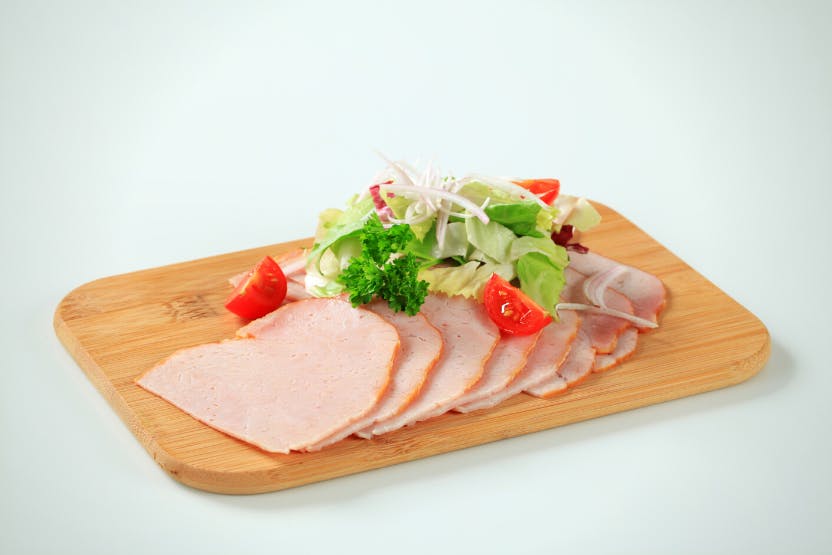Be it
Thanksgiving or
Christmas, turkey is a staple holiday food in the United States, as well as a common everyday sandwich filling. Humans certainly love the meat, but the question is, can dogs eat turkey, too?
The answer is yes. In fact, turkey is found in many commercial
kibbles and
wet dog food as it’s a lean and nutritious source of
protein. However, pet parents need to be a little more careful if they’re thinking of serving up fresh turkey to their dogs — bones, seasoning and fat can be dangerous.
Keep reading to discover the health benefits of turkey and how to give it to your dog safely.
Top takeaways include:
- Yes, it’s safe for dogs to eat turkey and it’s often found as an ingredient in commercial dog food
- Not only can dogs eat turkey, but there are nutritional arguments for them to do so — the meat is high in protein, low in fat and full of vitamins
- Turkey should be enjoyed by dogs in moderation and prepared in the correct way, too
- Bones, skin and dark meat should be avoided, as these can all cause dogs problems
- Parents shouldn’t give their dogs processed turkey products, such as turkey bacon and sausages
If you’ve ever worried ‘is turkey bad for dogs?’, the good news is it’s packed full of good stuff. This is just as well given that most dogs love the taste of it. Here are just some of the nutritional perks that come from eating turkey.
It’s Packed With Protein
It’s Low In Saturated Fat
Not only is turkey high in protein, but it’s low in fat as well — the same 100g (3.5oz) of turkey contains just 2g (0.07oz) of
fat. This compares favorably against other meats and is the reason why turkey is the main ingredient in so many
weight-management dog foods.
This low fat content makes it particularly digestible and suitable to feed dogs suffering from gastrointestinal upset.
It’s Full of Vitamins and Minerals
Turkey contains several minerals dogs need for a healthy body and mind, including:
That’s not all. Turkey is packed with B-complex vitamins, including Riboflavin,
Niacin, Pyridoxine, and B12, which are involved in numerous bodily processes, including:
- Macronutrient metabolism
- Red blood cell production
- Gastrointestinal health
- Hormone regulation
- Appetite regulation
- Immune response
- Protein synthesis
- Cognitive function
Here’s a detailed breakdown of the nutrients found in 113 grams of raw turkey breast:
- Calories: 129 kcal
- Total fat: 1.7 grams
- Saturated fat: 0.3 grams
- Cholesterol: 64 milligrams
- Sodium: 128 milligrams
- Total carbohydrates: 0.2 grams
- Sugar: 0.1 gram
- Protein: 27 gram
- Vitamin D: 0.1 micrograms
- Calcium: 12 milligrams
- Iron: 0.8 milligrams
- Potassium: 273 milligrams
Turkey and chicken have very similar nutrient profiles when it comes to the protein, vitamin, and mineral content. However, turkey has slightly
fewer calories than chicken and is a lower-risk food for dogs with
food allergies.
Aside from this, these meats are nutritionally similar and both can be a healthy part of the canine diet.
The amount of turkey you can safely give your dog depends on their weight and recommended caloric intake.
As a rough estimation, you can safely give a dog a quarter of a cup of turkey per 5 pounds of body weight. That means a 20 pound dog (say a
French Bulldog) can eat one cup of turkey a day.
Although turkey is good for dogs, it’s not nutritionally complete and cannot replace commercially manufactured dog food that’s been formulated to include everything a dog needs.
There are a number of ways turkey can be prepared — and some things to avoid, too.
For anybody asking can dogs eat Thanksgiving turkey, the answer is yes, providing it’s only been roasted, baked, boiled, and sauteed. Pan-fried turkey should be avoided as the excess oil can cause stomach upset.
Only white meat should be given to dogs, as the darker meat found in the legs is higher in fat and calories. The fat-heavy skin should also be avoided, as seasoning can potentially be toxic to dogs.
It’s possible to give dogs raw turkey in some circumstances — for example, as an ingredient in many
raw dog food recipes. Parents need to be very careful when it comes to raw meat as it can make dogs sick, especially if they don't normally eat
raw food or if the meat is contaminated with
Salmonella or
Campylobacter.
Can Dogs Eat Ground Turkey?
Yes, dogs can eat ground turkey, providing it’s completely plain and unseasoned. Again, pan-fried ground turkey is a no-go. Be sure to check the nutritional stats as some ground turkey can be made predominantly from the fattier dark meat as opposed to the leaner white meat.
Can Dogs Eat Turkey Bacon?
While some authorities don’t see a problem with giving dogs a small amount of turkey bacon, we would avoid it if possible. This is because it can be
high in sodium and fat, as well as other ingredients.
The same goes for any other turkey-based processed products, including sausages, burgers and jerky.
If dogs eat too much fat-heavy food — such as dark meat or turkey skin — they might suffer from
Acute Pancreatitis. Many vets report that the most common time for the diagnosis of Pancreatitis in dogs is the day following Thanksgiving, which is certainly revealing.
Heavily seasoned food — such as turkey skin — can also cause gastrointestinal upset, including vomiting and diarrhea. This is why it’s important to only give dogs small amounts of plain, white turkey meat.


